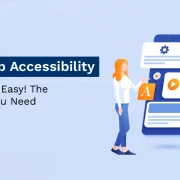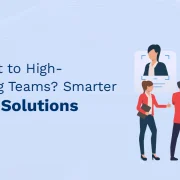Functional testing is a form of testing where the software system is tested against its functional requirements. The main aim here is to check the functionality of a component or an entire software system as well as its compliance with specified business requirements.
In functional testing, the mainline functions, accessibility, usability, and error conditions are all tested. The functional requirements are gauged first and then test data are identified. After which, the expected outcomes are computed and test cases are executed. Finally, the actual and expected results are matched to check for discrepancies.
Functional testing, being a type of black box testing, can be performed without the knowledge of the internal working of the software. Thereby, it is free of developer bias. It usually describes the working of a system and helps answer questions like “Can the user do this?” or “Will this feature work?”
Functional testing precedes non-functional testing. It is easy to perform functional testing manually.
Testing the functionality is done on the basis of two perspectives:
Requirement-based: In this type of testing, depending on the risk criteria, requirements, and consequently tests are prioritized. This way, the most critical tests are conducted without fail.
Business process-based: In this type of testing, the scenarios are those of day-to-day business use of the system. It involves the use of business processes.
Examples of functional testing:
- Unit testing – Testing that is performed by a developer who writes different code units to achieve a specific functionality is unit testing. Unit tests are written to call and validate the methods in each unit when the required parameters are passed and the return value is as expected. An important part of unit testing is Code coverage where test cases need to be written to cover line coverage, code path coverage and method coverage.
- Smoke testing – Also called build verification testing, it is the testing of a build when it is released for testing to ensure its stability.
- Sanity testing – It usually follows Smoke testing. It is done to check if all the major and important functionalities of the application system are working properly.
- Regression testing – It is testing performed to check whether new code, enhancements, or fixing defects does not break the existing functionality and continue to work as per the specifications.
- Integration testing – Multiple functional modules would individually work properly, but do they work coherently when joined together to achieve an end-to-end scenario is what is verified and validated by integration testing. Some of the functional testing tools include Selenium, QTP, and JUnit.
Automating functional testing:
Automating functional tests can save a lot of time. However, not all functional tests can be automated. The following can be a guideline for automating functional tests:
- Tests that need to be run repeatedly.
- Tests that run with different kinds of data.
- P1, P2 test cases that consume much effort and time.
- Tests that are highly error-prone.
- Those tests need to be run in different environments, browsers, etc.
Final word
In conclusion, functional testing reproduces the system as it is in a live environment. It does not run on assumptions. It is an important testing process that ensures the delivery of a high-quality, bug-free product that meets the specifications of the customer.






